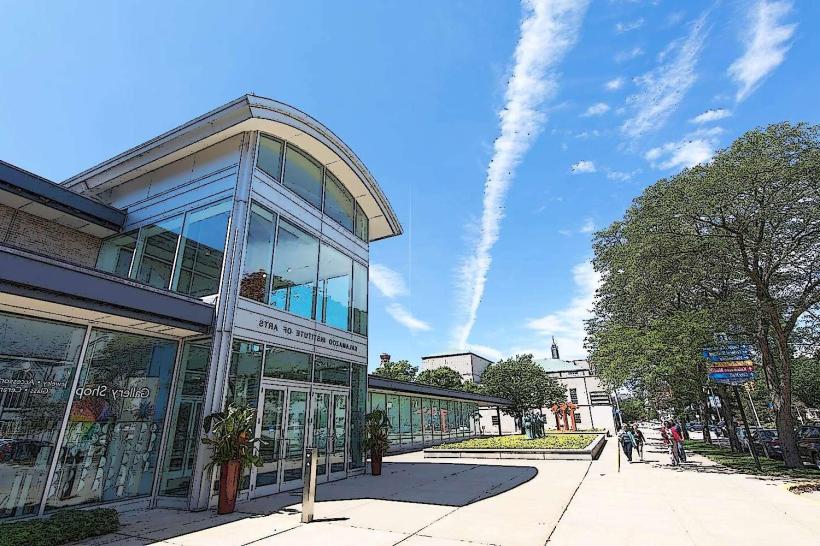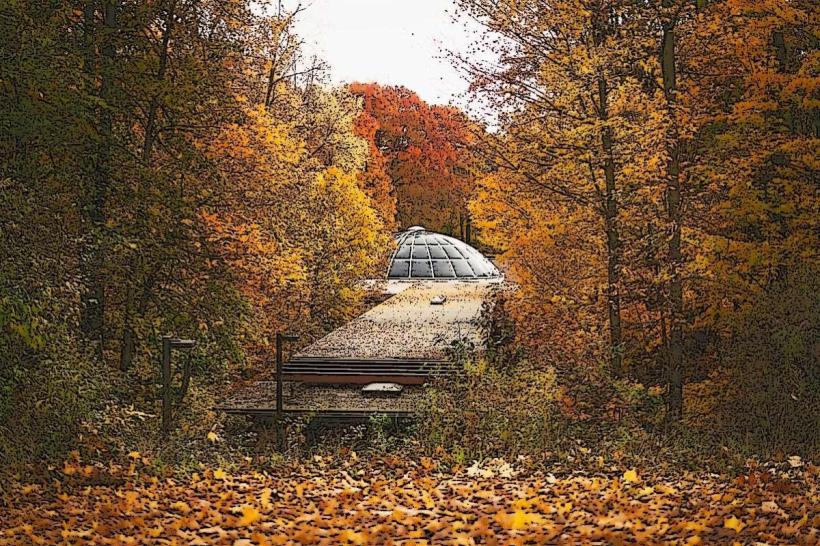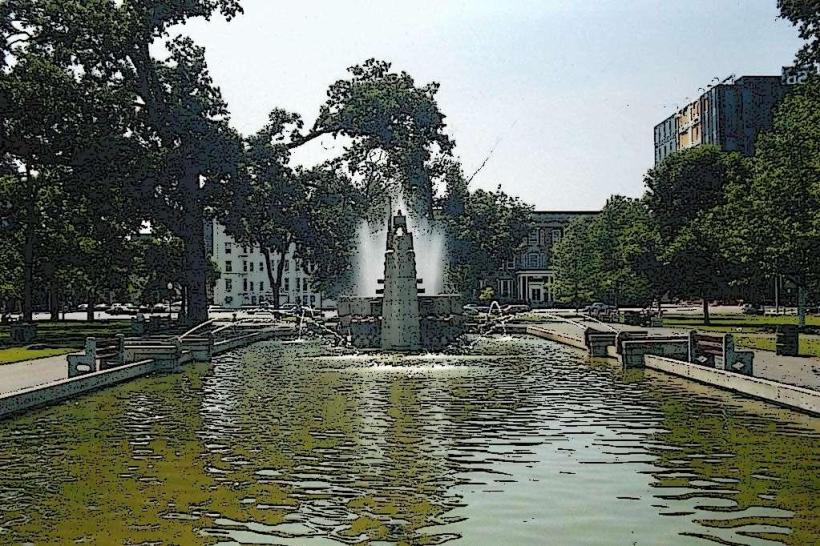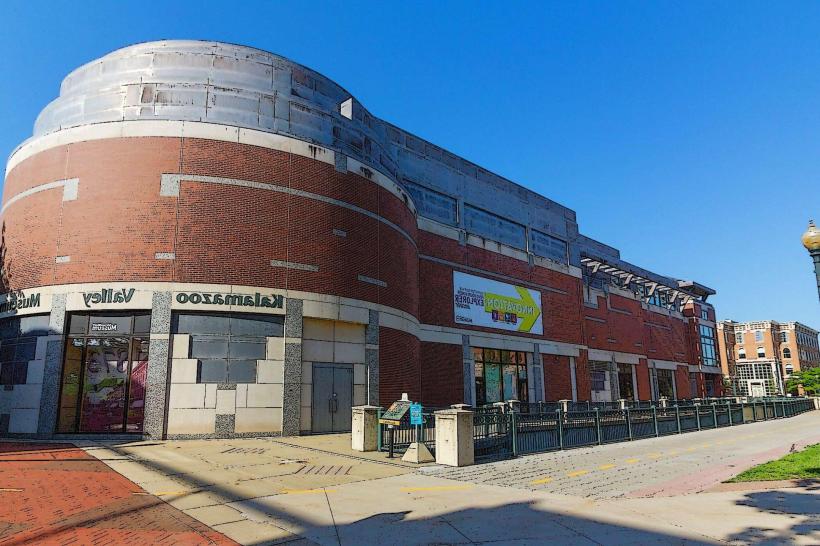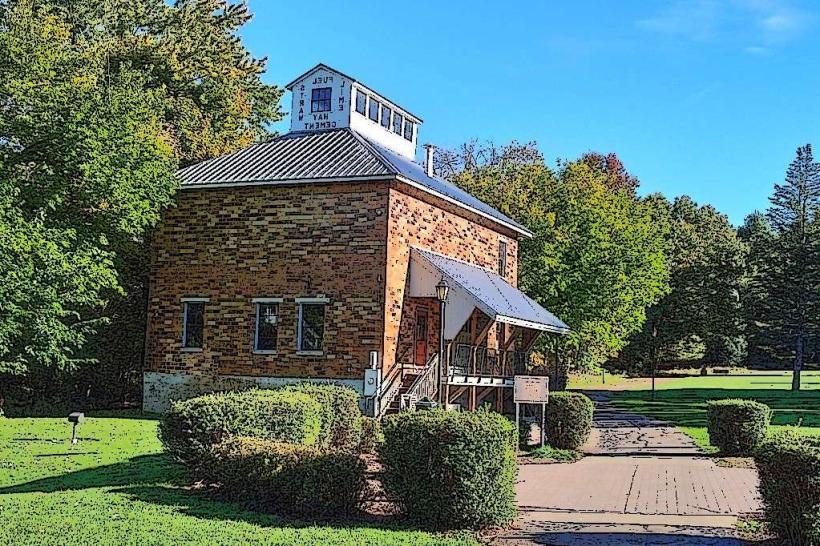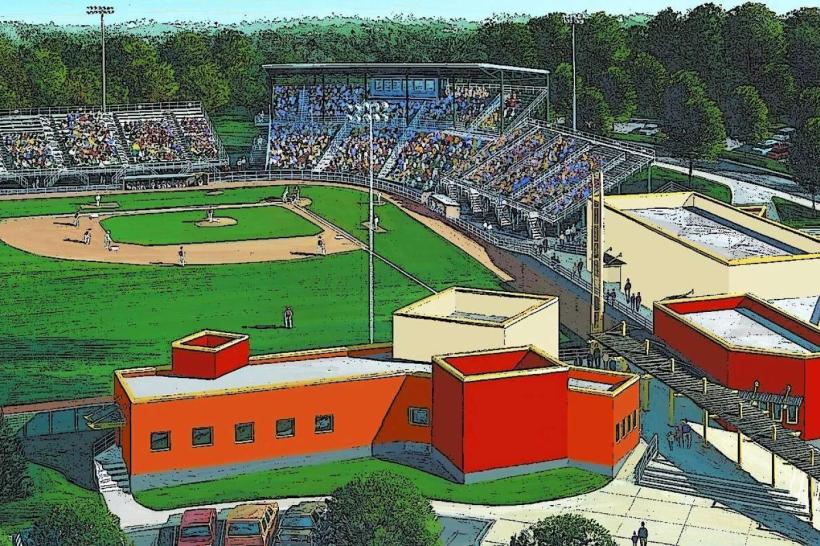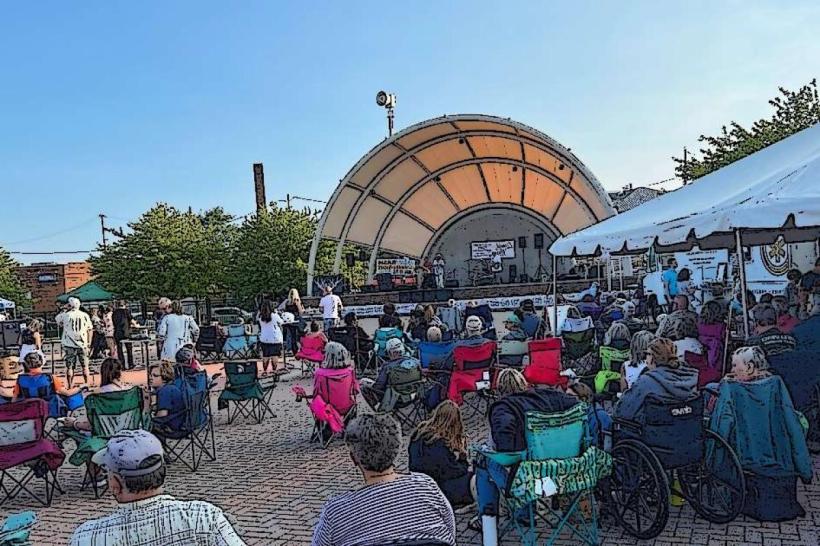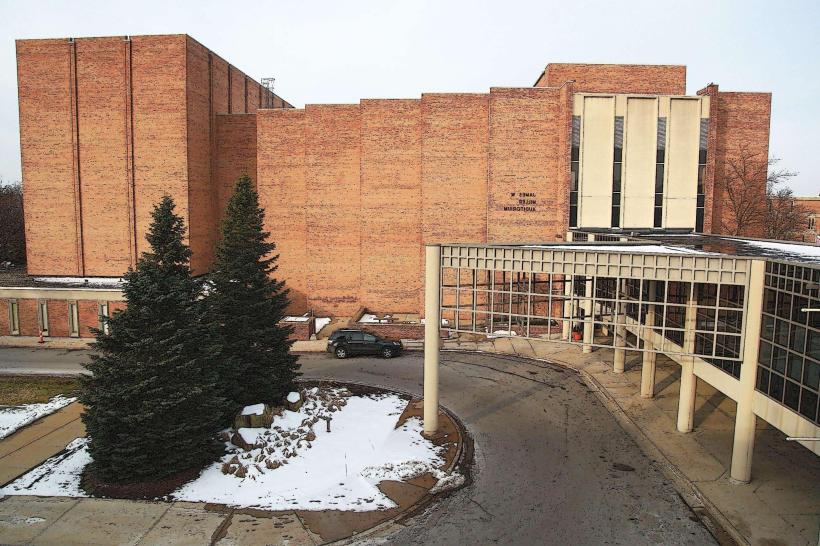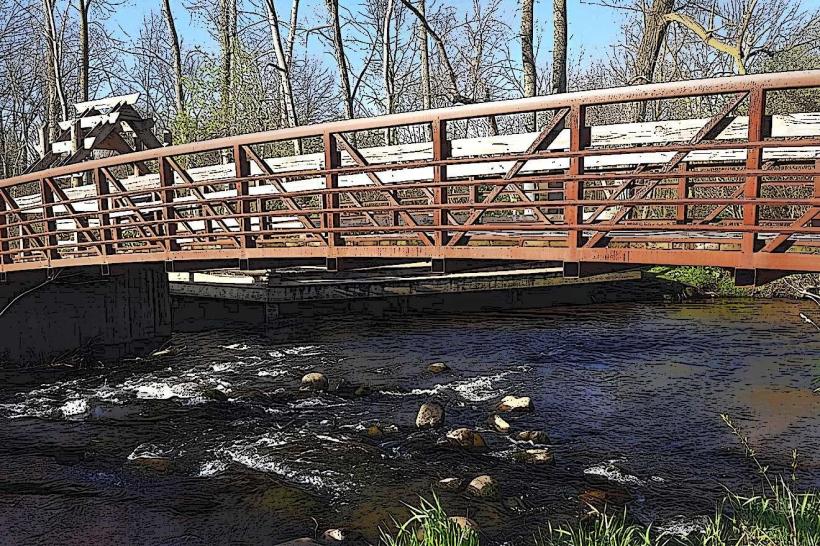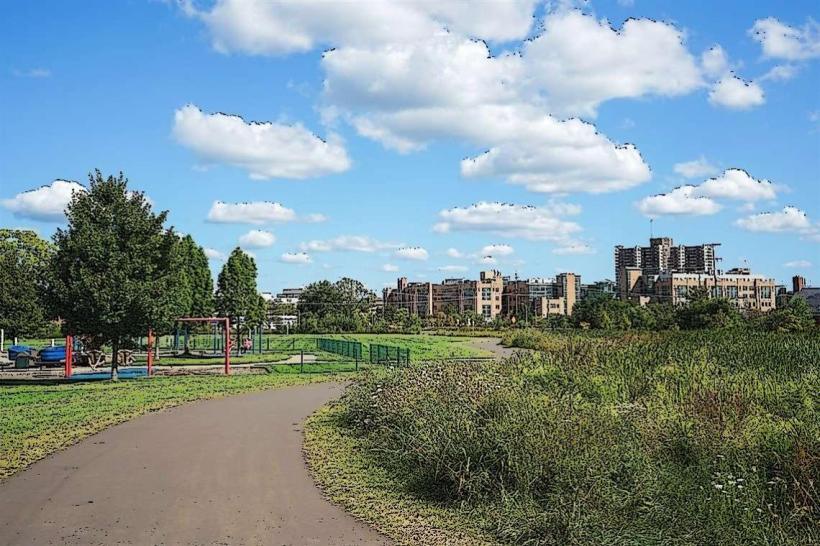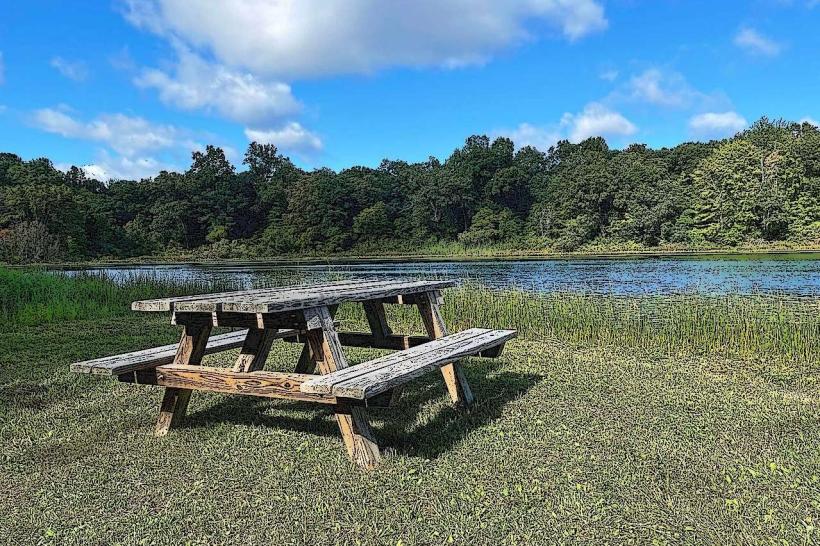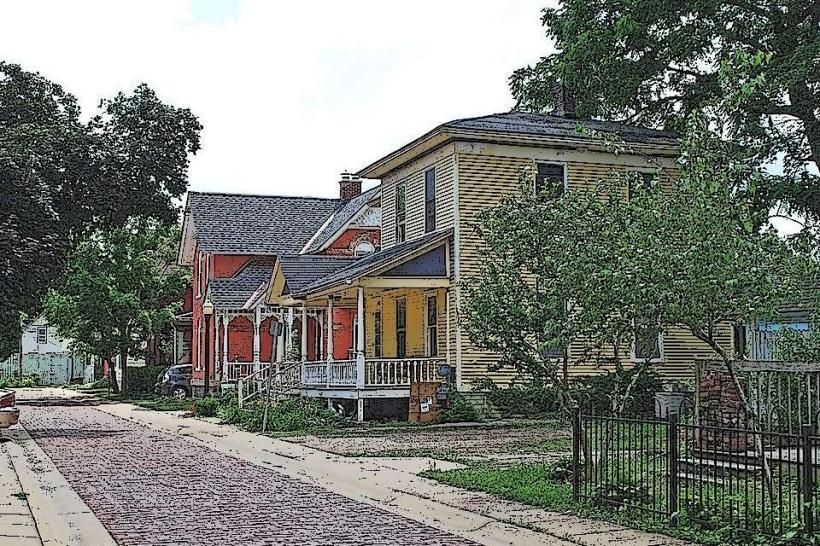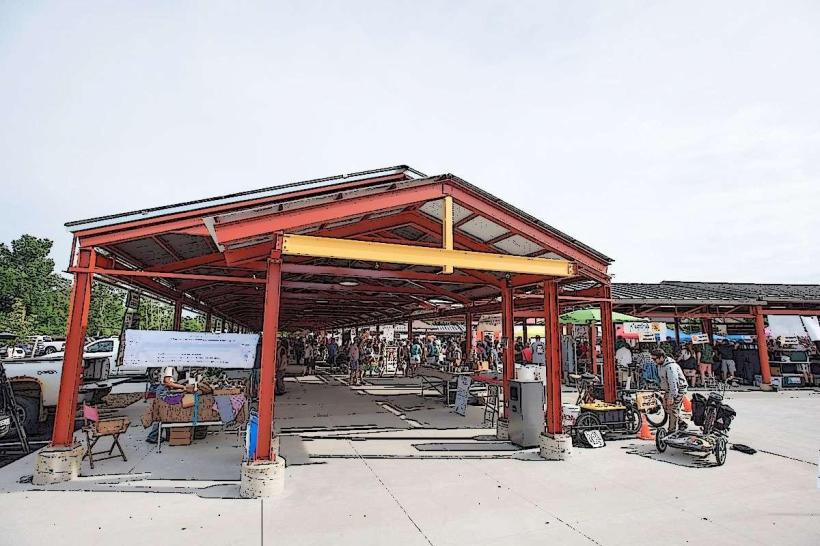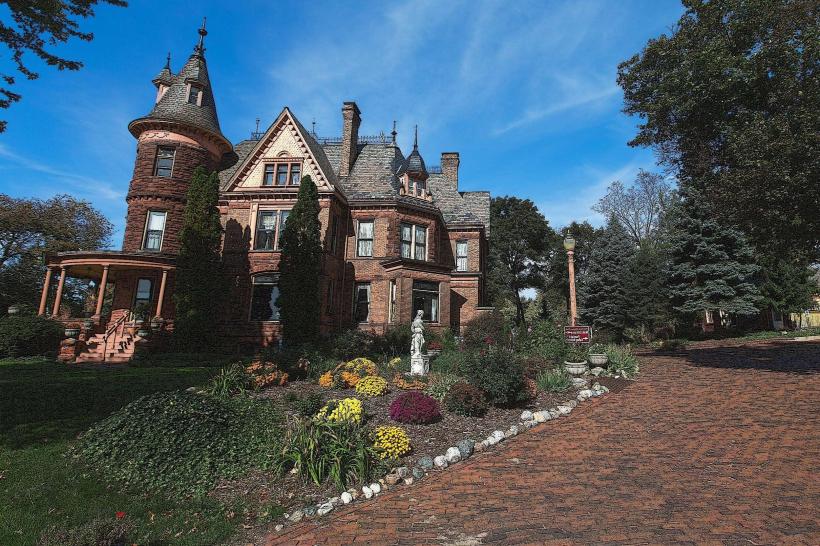Information
Landmark: Kalamazoo State TheatreCity: Kalamazoo
Country: USA Michigan
Continent: North America
Kalamazoo State Theatre, Kalamazoo, USA Michigan, North America
Kalamazoo State Theatre – In-Depth Detailed Overview
The Kalamazoo State Theatre is one of the most iconic and architecturally significant landmarks in Kalamazoo, Michigan. Located at 404 South Burdick Street, this historic theatre has been a cornerstone of the city’s cultural life since its opening in the late 1920s. It stands not only as a testament to the grandeur of early 20th-century movie palaces but also as a vibrant venue that continues to enrich the community through diverse live performances.
Historical Background and Origins
The theatre opened its doors on July 14, 1927, during an era when grand “movie palaces” were the epitome of entertainment venues across the United States. Originally built as a vaudeville and silent film theatre, the Kalamazoo State Theatre was designed to offer audiences an immersive experience beyond mere film screenings. At a time when going to the theatre was a major social event, the building’s elaborate design and opulence reflected the glamour of the entertainment industry and the aspirations of Kalamazoo as a growing city.
The project was commissioned by local investors who wanted a venue that would attract large crowds and contribute to the downtown’s vitality. It quickly became a central part of the city’s cultural fabric, hosting not only films but also live performances, including vaudeville acts, orchestras, and community events.
Architectural Significance
The theatre was designed by John Eberson, a preeminent architect famed for his development of the “atmospheric theatre” style. Eberson’s signature approach was to create a highly stylized and immersive environment where the audience felt transported into an exotic outdoor setting - often under a simulated night sky.
Key architectural and design features include:
Atmospheric Interior: The auditorium’s ceiling is painted a deep, twilight blue and embedded with tiny electric lights that twinkle like stars. Additionally, there are projections of drifting clouds that slowly move overhead, creating the illusion of an open-air courtyard beneath the night sky.
Spanish Courtyard Motif: The theatre’s interior is decorated to resemble a Mediterranean village courtyard, complete with architectural elements such as stucco walls, wrought iron balconies, urns, and statues. This creates a romantic and escapist atmosphere that transports visitors out of their everyday environment.
Lavish Detailing: Rich colors, ornate plasterwork, and artistic murals adorn the walls, enhancing the feeling of opulence and craftsmanship. The lobby and mezzanine areas also feature pottery, intricate light fixtures, and decorative ironwork.
Exterior: The theatre’s façade is built with buff-colored tapestry bricks, complemented by terra-cotta accents that add texture and visual interest. The building’s exterior is stately yet welcoming, signaling its cultural importance in the downtown district.
Evolution Over Time
Initial Use (1927–1960s): For several decades, the theatre flourished as a venue for vaudeville, silent films, and then “talkies.” It was a popular entertainment destination and hosted a variety of acts beyond just movies, including live orchestras and special performances.
Mid-20th Century Changes: In 1964, the original 45-foot tall vertical marquee sign was removed and replaced with a horizontal marquee. Interior renovations took place that altered some original decorative elements to accommodate modern tastes and technologies.
Decline and Threat of Closure (1970s–1980s): As television and suburban multiplex cinemas gained popularity, many single-screen downtown theatres faced decline. By the early 1980s, the Kalamazoo State Theatre struggled financially and was at risk of being demolished.
Community-Led Preservation: Recognizing its historic and cultural value, local preservationists and community leaders mobilized to save the theatre. In 1985, the Hinman Company purchased and restored the theatre, focusing on returning it to its former glory while adapting it for live performances.
National Register of Historic Places (2021): The theatre’s historical and architectural significance was formally recognized when it was added to the National Register of Historic Places, cementing its status as a protected historic landmark.
Current Role and Cultural Impact
Today, the Kalamazoo State Theatre operates as a multi-purpose performing arts venue. It hosts a wide range of events, including:
Concerts featuring regional, national, and international artists spanning genres from rock to classical.
Comedy shows, theatrical productions, and dance performances.
Community events, film screenings, and special cultural programs.
Its intimate seating capacity (approximately 1,500 seats) allows for a close connection between performers and audiences, creating memorable experiences.
The theatre is also an educational resource, offering behind-the-scenes tours that reveal the craftsmanship of its historic design and the mechanics of live production.
Preservation and Modernization Efforts
The continued preservation of the Kalamazoo State Theatre has involved balancing historic authenticity with modern amenities:
Restoration of Original Features: Efforts have been made to restore much of the original plasterwork, murals, and atmospheric ceiling effects.
Technological Upgrades: Sound systems, lighting rigs, and stage equipment have been updated to meet contemporary performance standards without compromising the historic ambiance.
Accessibility Improvements: Modifications ensure that the theatre is accessible to all visitors, including those with disabilities, while preserving the character of the building.
Significance
The Kalamazoo State Theatre is more than just a building; it is a living piece of cultural heritage that encapsulates the evolution of entertainment, architecture, and community values over nearly a century. It exemplifies:
The golden age of American movie palaces.
The innovative architectural vision of John Eberson.
The power of community action to preserve local landmarks.
The ongoing vitality of downtown Kalamazoo as a center for arts and culture.
Summary
The Kalamazoo State Theatre stands as a shining example of atmospheric theatre design and cultural endurance. Since opening in 1927, it has offered generations of Kalamazoo residents and visitors a magical escape through film and live performance. Its carefully preserved architecture, combined with adaptive use as a contemporary venue, ensures that it remains an indispensable asset to the city’s artistic life and a symbol of historic preservation success.

